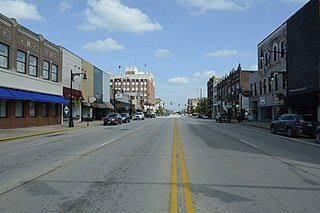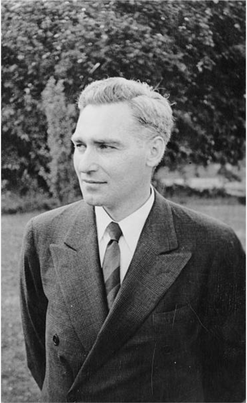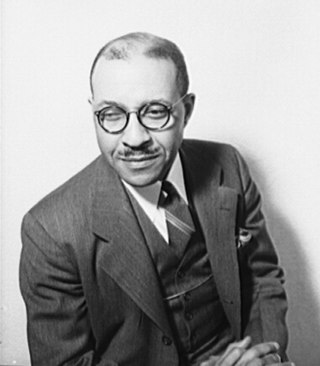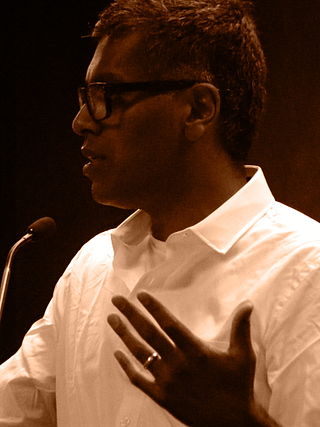Related Research Articles

Galesburg is a city in Knox County, Illinois, United States. The city is 45 miles (72 km) northwest of Peoria. At the 2010 census, its population was 32,195. It is the county seat of Knox County and the principal city of the Galesburg Micropolitan Statistical Area, which includes all of Knox and Warren counties.

A maquiladora, or maquila, is a word that refers to factories that are largely duty free and tariff-free. These factories take raw materials and assemble, manufacture, or process them and export the finished product. These factories and systems are present throughout Latin America, including Mexico, Paraguay, Nicaragua, and El Salvador. Maquiladoras date back to 1964, when the Mexican government introduced the Programa de Industrialización Fronteriza. Specific programs and laws have made Mexico's maquila industry grow rapidly.
Andrew M. Greeley was an American Catholic priest, sociologist, journalist and popular novelist.

Reynosa is a border city in the northern part of the state of Tamaulipas, in Mexico which also holds the municipal seat of Reynosa Municipality.
William Julius Wilson is an American sociologist, a professor at Harvard University, and an author of works on urban sociology, race, and class issues. Laureate of the National Medal of Science, he served as the 80th President of the American Sociological Association, was a member of numerous national boards and commissions. He identified the importance of neighborhood effects and demonstrated how limited employment opportunities and weakened institutional resources exacerbated poverty within American inner-city neighborhoods.

Robert Ezra Park was an American urban sociologist who is considered to be one of the most influential figures in early U.S. sociology. Park was a pioneer in the field of sociology, changing it from a passive philosophical discipline to an active discipline rooted in the study of human behavior. He made significant contributions to the study of urban communities, race relations and the development of empirically grounded research methods, most notably participant observation in the field of criminology. From 1905 to 1914, Park worked with Booker T. Washington at the Tuskegee Institute. After Tuskegee, he taught at the University of Chicago from 1914 to 1933, where he played a leading role in the development of the Chicago School of sociology.

The Sun Belt is a region of the United States generally considered stretching across the Southeast and Southwest. Another rough definition of the region is the area south of the 36th parallel. Several climates can be found in the region — desert/semi-desert, Mediterranean (California), humid subtropical and tropical.

Eddie Harris was an American jazz musician, best known for playing tenor saxophone and for introducing the electrically amplified saxophone. He was also fluent on the electric piano and organ. His best-known compositions are "Freedom Jazz Dance", popularized by Miles Davis in 1966, and "Listen Here".

The Rust Belt, formerly the "Steel Belt", is a region of the Northeastern and Midwestern United States. It includes Central New York, Pennsylvania, Ohio, West Virginia, Indiana, Illinois, the Lower Peninsula of Michigan, southeastern Wisconsin, parts of Kentucky, Baltimore, and the St. Louis metropolitan area in Missouri. Cities in the Rust Belt include Allentown, Buffalo, Chicago, Cincinnati, Cleveland, Detroit, Gary, Philadelphia, Pittsburgh, Rochester, Toledo, Trenton, and Youngstown.
Gary Alan Fine is an American sociologist and author.

Thomas Robert Shannon Broughton, FBA was a Canadian classical scholar and leading Latin prosopographer of the twentieth century. He is especially noted for his definitive three-volume work, Magistrates of the Roman Republic (1951-1986).

Charles Spurgeon Johnson was an American sociologist and college administrator, the first black president of historically black Fisk University, and a lifelong advocate for racial equality and the advancement of civil rights for African Americans and all ethnic minorities. He preferred to work collaboratively with liberal white groups in the South, quietly as a "sideline activist," to get practical results.
Elizabeth Marquardt is author of Between Two Worlds: The Inner Lives of Children of Divorce which reports the first national study in the United States of grown children of divorce. In 2001, she co-authored a national study titled "Hooking Up, Hanging Out, and Hoping for Mr. Right: College Women on Dating and Mating Today." In 2010, she co-authored with Norval Glenn and Karen Clark the study "My Daddy's Name is Donor: A New Study of Young Adults Conceived Via Sperm Donation."
Vytautas Kavolis was a Lithuanian sociologist, literary critic, and culture historian.

Sudhir Alladi Venkatesh is an American sociologist and urban ethnographer. He is William B. Ransford Professor of Sociology & African-American Studies at Columbia University, a position he has held since 1999. In his work, Venkatesh has studied gangs and underground economies, public housing, advertising and technology. As of 2018, he is the Director of Signal: The Tech & Society Lab at Columbia University.
Richard Arum is an American sociologist of education and stratification, best known for his research on student learning, school discipline, race, and inequality in K-12 and higher education.
Douglas A. Harper is an American sociologist and photographer. He is the holder of the Rev. Joseph A. Lauritis, C.S.Sp. Endowed Chair in Teaching with Technology at Duquesne University, a chair funded by a grant from the Mellon Foundation.
Gerald H. Gamm is a professor of political science and history at the University of Rochester. He served for 12 years as chair of the political science department. Currently, his research focuses on Congress, state legislatures, and urban politics. Gamm is the author of two books: The Making of New Deal Democrats, and Urban Exodus: Why the Jews Left Boston and the Catholics Stayed.
Boom, Bust, Exodus: The Rust Belt, the Maquilas, and a Tale of Two Cities by Chad Broughton is the narrative nonfiction account of a Maytag appliance factory that relocates from Galesburg, Illinois, a small city at the western edge of the American Rust Belt, to Reynosa, Tamaulipas, a booming city at the U.S.-Mexico border. The book provides a detailed account of these two places as they change over time drawing on industrial histories, ethnographic observation, oral history interviews, and fieldwork on both sides of the border. In the Galesburg chapters, Boom, Bust, Exodus explores how blue collar families cope, adapt, and, in some cases, thrive, in the decade after the devastating 2004 layoffs. In Reynosa, which in 2015 had nearly 100,000 industrial jobs in the maquiladora sector, Boom, Bust, Exodus offers a ground-level look at Mexico's rapid transition to a globalized economy. In addition, to tell Reynosa's story, Broughton takes the reader to rural Veracruz—from which many of the maquiladora workers have migrated—in order to more fully understand the brave new world of North American economic integration. According to the publisher, "Boom, Bust, Exodus gives us the voices of those who have borne the heaviest burdens of the economic upheavals of the past three decades. A deeply personal work grounded in solid scholarship, this important, immersive, and affecting book brings home the price and the cost of globalization."
Paul Hertneky is an American journalist and author best known for his 2016 book Rust Belt Boy: Stories of an American Childhood, about the Baby boomers he grew up with in the rust belt mill town of Ambridge, Pennsylvania, where he was once a steel worker.
References
- ↑ "Chad Broughton". uchicago.edu.